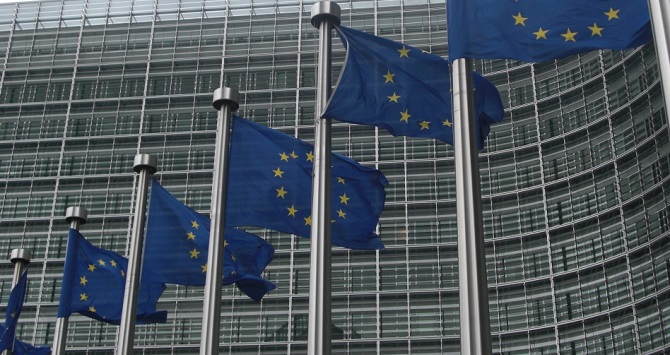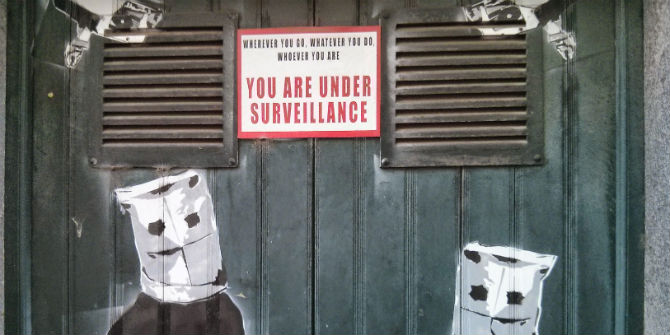
 On 2 February 2016, the European Court of Human Rights (ECtHR) delivered a judgement on Magyar Tartalomszolgáltatók Egyesülete and Index.hu Zrt v. Hungary (MTE and Index.hu). The case concerned the liability of online intermediaries for user comments. Using the criteria established in the Delfi AS case of 16 June 2015, the Court found that there had been a violation of Article 10 of the European Convention on Human Rights, the right to freedom of expression. Unlike in Delfi AS, the Court decided that the incriminated comments in this case did not amount to hate speech or incitement to violence. Following on from this recent blogpost which summarises the two cases, Pieter-Jan Ombelet and Aleksandra Kuczerawy from KU Leuven analyse the criteria that were taken into account by the ECtHR in both cases, and highlight some of the implications of the recent judgement.
On 2 February 2016, the European Court of Human Rights (ECtHR) delivered a judgement on Magyar Tartalomszolgáltatók Egyesülete and Index.hu Zrt v. Hungary (MTE and Index.hu). The case concerned the liability of online intermediaries for user comments. Using the criteria established in the Delfi AS case of 16 June 2015, the Court found that there had been a violation of Article 10 of the European Convention on Human Rights, the right to freedom of expression. Unlike in Delfi AS, the Court decided that the incriminated comments in this case did not amount to hate speech or incitement to violence. Following on from this recent blogpost which summarises the two cases, Pieter-Jan Ombelet and Aleksandra Kuczerawy from KU Leuven analyse the criteria that were taken into account by the ECtHR in both cases, and highlight some of the implications of the recent judgement.
The MTE and Index.hu judgement was eagerly anticipated. Many were anxious to find out how the Court would further develop its stance regarding liability for online user generated content. The ECtHR’s judgement makes a direct comparison between this case and its recent judgement on Delfi AS. The ECtHR explicitly stated that ‘the present case is different’, as the third party comments in this case did not constitute clearly unlawful speech, and they certainly did not amount to hate speech or incitement to violence. In a sense, the Court confirmed that the scope of Delfi AS was confined to hate speech. The ECtHR nevertheless deemed it appropriate to re-use the same criteria that it developed in the Delfi AS case to assess the interference in question, which are: (i) the context (and content) of the comments, (ii) the liability of the actual authors of the comments, (iii) the measures applied by the applicants to prevent or remove defamatory comments and (iv) the consequences for the parties involved. Below, we discuss each of these criteria in turn.
The context (and content) of the comments – the ECtHR regarded the comments published under MTE’s statement as relating to a matter of public interest. The business conduct of the online real estate companies had already generated numerous complaints to domestic consumer protection groups. The ECtHR considered the comments to be clear value judgements, denouncing the company’s commercial conduct. The comments were found to be offensive and vulgar; however, the Court considered the expressions used as commonly-found on internet portals, thereby reducing their impact.
The liability of the actual authors of the comments – the ECtHR noted that the Hungarian domestic courts did not examine the feasibility of identifying the actual authors of the comments, nor did it analyse the proportionality of the division of liability between the actual authors and the internet portals. In this regard, the ECtHR considered that MTE and Index.hu’s liability for the comments is ‘difficult to reconcile with the existing case-law according to which “punishment of a journalist for assisting in the dissemination of statements made by another person in an interview would seriously hamper the contribution of the press to discussion of matters of public interest and should not be envisaged unless there are particularly strong reasons for doing so” (ECtHR Jersild v. Denmark)’.
The applied measures – the Hungarian domestic courts decided that by allowing unfiltered comments, the applicants should have expected that some of the comments would be unlawful. Both MTE and Index.hu had a notice-and-take down system in place and both provided a disclaimer in their terms and conditions which prohibited unlawful comments. In addition, Index.hu had a team of moderators in place, whose job it was to monitor and act on comments. The domestic courts ruled that these measures were not sufficient; however the ECtHR disagreed. It found that the domestic courts’ expectations required ‘excessive and impracticable forethought capable of undermining freedom of the right to impart information on the Internet’. As an interesting detail, the ECtHR pointed out that the injured company never actually requested the removal of the comments.
Consequences for the parties involved – with regard to the online real estate companies, the ECtHR emphasised that there were already ongoing inquiries into their business conduct. Therefore, it was not convinced that the impugned comments made any additional (negative) impact on the attitude of consumers. MTE and Index.hu were ordered to pay the court fees and legal representation fees, but no damages. The decisive question however is the manner in which internet portals can be liable for third-party comments. The rulings of the domestic courts could have foreseeable negative consequences if internet portals react by closing their online spaces for public comment as a preventive measure, therefore having a serious chilling effect on online freedom of expression.
The ECtHR concluded that the interference was indeed a violation of Article 10 (Freedom of Expression) as the Hungarian domestic court did not balance the interests of the online real estate company and MTE and Index.hu, and the comments did not constitute hate speech.
Implications of the judgement
In the concurring opinion, the EctHR’s Judge Kūris explained that despite the opposite outcomes, the present judgement does not depart from the principles of Delfi AS. The Court, it seems, used this opportunity to clarify that the Delfi AS judgment was, in fact, limited in scope to “clearly unlawful” comments consisting of hate speech and incitement to violence. It is crucial that in the Hungarian case, where the comments were merely vulgar and offensive, implementing a notice-and-take down mechanism was considered sufficient to balance the rights and interests of the parties involved. The Court did not see why such a system could not have provided a viable avenue to protect the commercial reputation of the plaintiff. Interpreted in combination with the Delfi AS ruling, this means that it is acceptable for offensive comments to be deleted upon notification, while higher standards of care need to be applied to hate speech, which requires portals to remove material on their own initiative.
The distinction is welcomed, but the Court ultimately does not address the fact that in order to detect hate speech which needs to be removed, monitoring of all comments will most likely need to be performed. This has significant resource (and other) implications. Even though MTE and Index.hu adds nuances to the Delfi AS ruling, the Court’s decision in the MTE and Index.hu case effectively could still lead to general monitoring. This would be a significant outcome, especially in the light of Article 15 of the E-Commerce Directive, which prohibits imposition of a monitoring obligation, other than in specific cases and with an order by a national court or administrative authority (see that analysis by the CJEU in Scarlet v. Sabam).
The conclusion could be that, when it comes to online intermediaries, Articles 14 and 15 of the E-Commerce Directive offer more protection than Article 10 of the ECHR.
This blog gives the views of the author, and does not represent the position of the LSE Media Policy Project blog, nor of the London School of Economics.






1 Comments